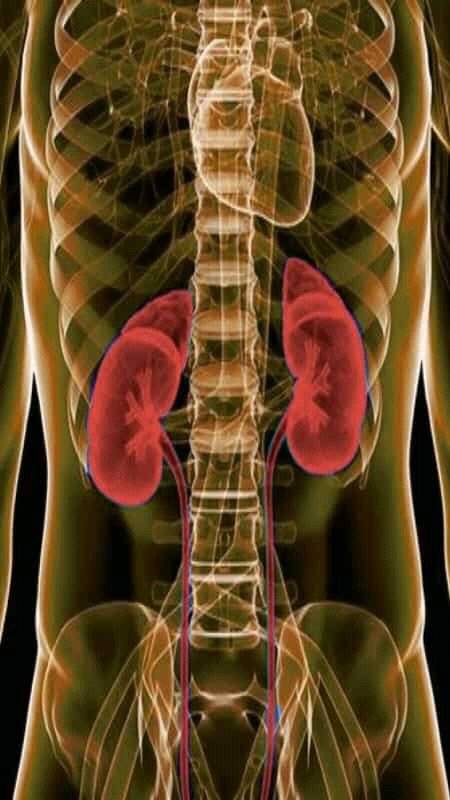Cancer of the stomach, also known as gastric cancer, is a serious and potentially life-threatening disease. While various factors contribute to the development of stomach cancer, including genetics and environmental factors, diet plays a crucial role in either increasing or decreasing one's risk. To live a longer and healthier life and reduce the risk of stomach cancer, it's essential to make informed dietary choices and avoid certain foods and habits.
**1. Processed and Red Meats:**
Processed meats, such as bacon, sausage, and hot dogs, have been linked to an increased risk of stomach cancer. They often contain preservatives and chemicals that can be harmful. Red meats like beef and pork should also be consumed in moderation, as high intake has been associated with a higher risk of stomach cancer.
**2. Pickled and Smoked Foods:**
Foods that are pickled or smoked, such as pickles and smoked fish, can contain carcinogenic substances. These foods may increase the risk of stomach cancer, particularly when consumed regularly.
**3. Salt-Preserved Foods:**
High-salt foods, such as salt-preserved vegetables and certain fish, have been linked to an elevated risk of stomach cancer. Excess salt can damage the stomach lining and potentially lead to the development of cancerous cells.
**4. Fried and Fatty Foods:**
Diets high in fried and fatty foods have been associated with an increased risk of various types of cancer, including stomach cancer. These foods can contribute to obesity and inflammation, both of which are risk factors for cancer.
**5. Sugary and Highly Processed Foods:**
Diets rich in sugary and highly processed foods have been linked to obesity, which is a known risk factor for several types of cancer, including stomach cancer. Reducing your intake of sugary snacks, sodas, and highly processed foods can be beneficial.
**6. Spicy Foods:**
Spices themselves are not carcinogenic, but extremely spicy foods can irritate the stomach lining. Over time, chronic irritation may increase the risk of stomach cancer. If you enjoy spicy foods, it's advisable to consume them in moderation.
**7. Excessive Alcohol Consumption:**
Heavy alcohol consumption has been associated with an increased risk of stomach cancer. Limiting or moderating your alcohol intake can help reduce this risk.
**8. Tobacco Use:**
While not a dietary factor, it's important to mention that tobacco use, including smoking and smokeless tobacco, is a significant risk factor for stomach cancer. Quitting smoking and avoiding all forms of tobacco is crucial for cancer prevention.
**9. Poor Eating Habits:**
Eating too quickly, overeating, or irregular meal patterns can contribute to stomach discomfort and increase the risk of stomach cancer. Adopting healthy eating habits, such as eating slowly and in moderate portions, can help reduce this risk.
**10. Inadequate Fruits and Vegetables:**
Fruits and vegetables are rich in vitamins, minerals, and antioxidants that can help protect against cancer. A diet low in fruits and vegetables can increase the risk of stomach cancer. It's important to maintain a balanced diet that includes a variety of these foods.
**11. Food Contaminants:**
Foodborne contaminants, such as aflatoxins produced by molds, can be found in certain grains, nuts, and legumes. Prolonged exposure to these contaminants can increase the risk of stomach cancer. Proper food storage and handling can help reduce this risk.
**12. Helicobacter pylori (H. pylori) Infection:**
Infection with H. pylori, a bacterium that can infect the stomach lining, is a significant risk factor for stomach cancer. Reducing your risk involves practicing good hygiene and seeking treatment if you suspect an H. pylori infection.
Preventing stomach cancer isn't solely about avoiding specific foods but adopting a well-balanced and healthy lifestyle. It's crucial to maintain a diet rich in fruits, vegetables, whole grains, lean proteins, and to stay physically active. Additionally, regular screenings and check-ups with a healthcare professional can help detect potential issues early, improving the chances of successful treatment and a longer, healthier life.
In conclusion, while there are foods and habits that can increase the risk of stomach cancer, it's essential to approach dietary choices as part of a broader commitment to a healthier lifestyle. Making informed choices about what you eat, practicing moderation, and being mindful of food preparation and storage can contribute to a reduced risk of stomach cancer and an overall longer and healthier life.



No comments yet
Be the first to share your thoughts!